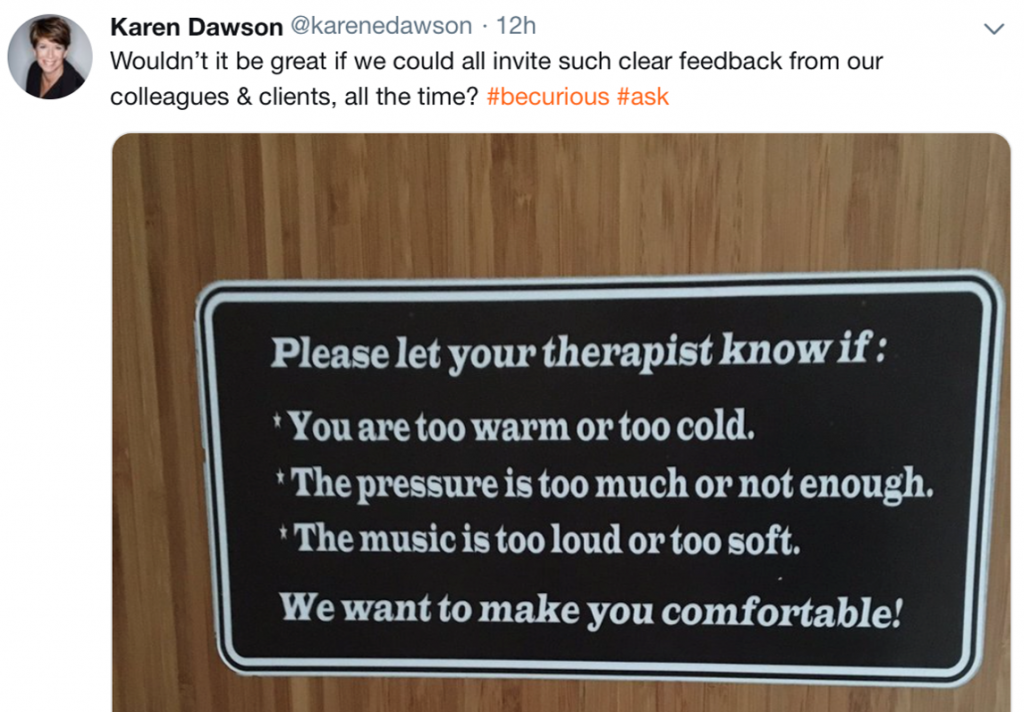If you are a fan of 1970s music, you might know Nick Lowe’s 1979 hit, “Cruel to be Kind.”
Since I devoured Brene Brown’s new book, Dare to Lead, that song has taken up residence as an earworm for me, with a slight modification to the main lyrics: “You’ve gotta be clear to be kind, in the right measure…”
Brown states, “Clear is kind. Unclear is unkind.”1
This rocked my world. Because we know it to be true, don’t we? Aren’t you grateful when someone is straight in their communication with you? It’s stressful when we sense we are being given a partial or fuzzy picture of what is going on.
As my Deeper Funner friend Karen Dawson tweeted recently:

We crave clear feedback.
I sing the praises of candour in group conversations all the time. When people ask me how to handle dysfunctional behaviour in the room, I usually start with, “Name it.” If they ask what to do if the group seems to be spinning its wheels, I often suggest, “Honestly reflect back to the group what you’re seeing.” If I am stuck or confused as the facilitator, one of my first strategies is to candidly ask the group for help.
Ed Catmull tells the story of his time leading Pixar in Creativity Inc. He talks about candour being critical to the creative process, because everything sucks at the beginning and somebody needs to say so.2 Pixar created a Braintrust, where the expectation of membership is utter honesty. Because it’s necessary.
Amy Edmondson takes this idea even further in her excellent new book The Fearless Organization. In the FAQ section, she addresses the concern that achieving psychological safety (which she defines as mission critical for effective teams) slows things down, to the point that decision making takes too much time. She suggests that bad process is what slows things down (can you see why I like her?), not building psychological safety. But she goes on to say that a lack of psychological safety can itself slow down a group’s performance because people are coping with innuendo and veiled criticism, and that requires extra time to figure out.3 Yet another example demonstrating that clear is kind.
We’re often afraid to be candid with people. We hold back, concerned perhaps that we will hurt their feelings. I hope this reframing of clarity as kindness is helpful in unleashing authenticity in you and within your teams.
And you’re welcome for the earworm too.
Footnotes
- Brené Brown, Dare to Lead: Brave Work. Tough Conversations. Whole Hearts (New York: Random House, 2018): 44.
- Ed Catmull, Creativity, Inc.: Overcoming the Unseen Forces That Stand in the Way of True Inspiration (Toronto: Random House of Canada, 2014).
- Amy Edmondson, The Fearless Organization: Creating Psychological Safety in the Workplace for Learning, Innovation, and Growth (New York: John Wiley & Sons Inc., 2018).
